Do you know all the features and tools in Microsoft Word? If yes, do you know how to remove the Header and Footer in your Word documents? Well, this is one of the operations many Word users are unfamiliar with. In documents, headers and footers are widely used to display information such as page numbers, titles, and author names. However, you may wish to delete them from your document at times. This article will discuss some of the top methods and workarounds rotating around headers and footers in Word. If you're new or less experienced with Word and PDFs, don't worry. UPDF is what you need. Just download UPDF via the below button to use it directly. For those who want to know more about how to remove header and footer in your word and PDF documents, continue reading.
Windows • macOS • iOS • Android 100% secure
Part 1: Things You Should Learn About Header and Footer
1.1 What are Header and Footer?
Do you know your Word document is divided into three sections? A typical Word document has the Header, a body section, and the Footer. A header is a portion of a document that displays at the top of each page. It may include facts such as the document title, chapter titles, page numbers, and author name, among others. Headers are important for giving consistent and relevant information to readers as they travel through a text. Depending on the demands of the page, headers might also include components such as logos, photos, and hyperlinks. They can be configured to appear on the page's left, center, or right side.
As its name suggests, Footer is found on the lower part of the document. A footer is a section of a Microsoft Word document that appears at the bottom of each page. It may include information such as the document's page number, date, and author, among other things. Footers, like headers, are part of the document's "page layout" settings and may be modified separately from the main body of the content. This involves altering margins, orientation (portrait vs. landscape), paper size, and other factors. Footers can also incorporate page numbers, dates, and document version information. They may be customized to appear on the page's left, center, or right side, and they can be different on the first page or odd/even pages of a document.
1.2 Reasons and Scenarios to Remove Header and Footer in Word
- Headers and footers can occasionally cause formatting difficulties, such as when they conflict with margins or page breaks. In such circumstances, deleting the Header or Footer might assist in alleviating the problem.
- Some individuals may prefer not to use headers and footers in their documents because they are distracting or prefer a minimalist design.
- In certain circumstances, you may need to delete headers and footers to suit specific formatting or style requirements.
Part 2: Three Methods to Remove Header and Footer in Word
Next, we’ll introduce two methods to remove header and footer in Word for both Windows and Mac users.
2.1 How to remove the Header and Footer in Windows
Method 1: Using the Delete Key
When using Windows, you can manually remove the header footer section. Here are the workarounds you need to follow:
- Open the document that you need to remove the Footer or Header.
- Click on the bottom or top of the part section of your document. Thus, the footer and header sections will be opened.
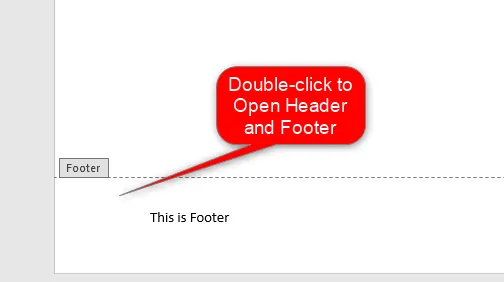
- Locate the section of the Header or Footer you want to remove. Then, use the Delete key on your keyboard to erase the portions.
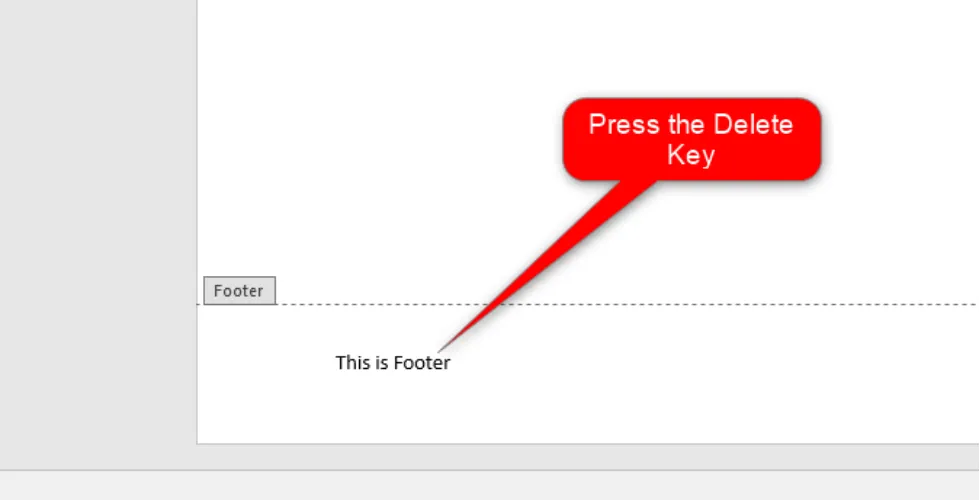
Pros
- It can be beneficial when you want to delete a selected header or Footer section.
- It is a straightforward operation. Thus, less experienced users can learn it easily.
- Since it involves keyboard shortcuts, it can save the user time.
Cons
- Time wastage, especially when many items are in the Footer or Header.
- It is suitable for a limited number of pages.
Method 2: Using the Remove Header or Remove Footer Tool
Remove Header and Remove Footer are in-built tools vital in removing the document's Header or Footer. Here are the steps to use these tools:
- Open the document that you need to remove the Footer or Header.
- Double-click on the bottom or top of the part section of your document.
- In the Toolbar, click the Design tab.
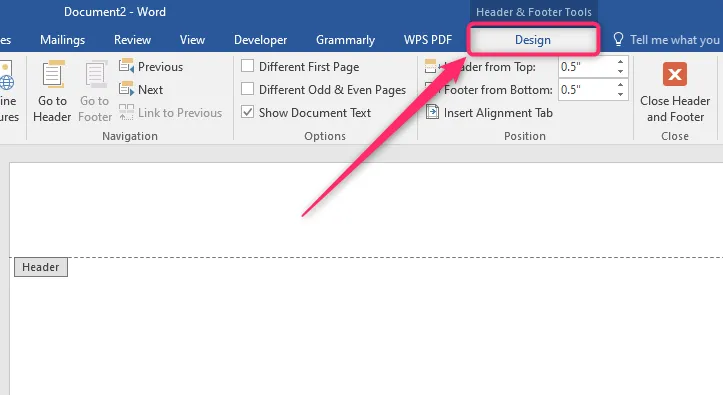
- In the Design Section, locate the Header and Footer Section. Then Click on either the Header or the Footer drop-down button.
- Depending on the drop-down you choose, click either the Remove Header or Remove Footer from the menu.
Pros
- Suitable when working with a document of many pages.
- It is essential when you need to get rid of all the content in the Header or Footer.
Cons
- It involves workarounds that less experienced users may not be aware of.
- Not suitable when you need to delete some sections of your Header or Footer.
2.2 How to remove the Header and Footer in Mac
Using the Insert Tool
Here are the steps to follow:
- Open the document that you need to remove the Footer or Header.
- Click on the bottom or top of the part section of your document.
- In the Toolbar, click the Insert tab.
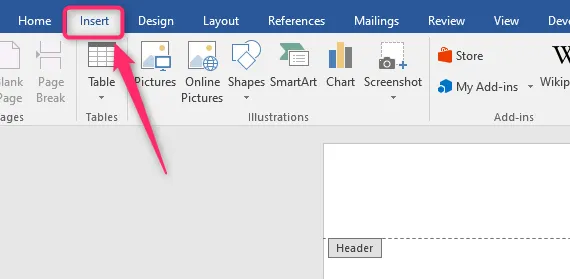
- Locate the Header and Footer Sections. Then Click on either the Header or the Footer drop-down button.
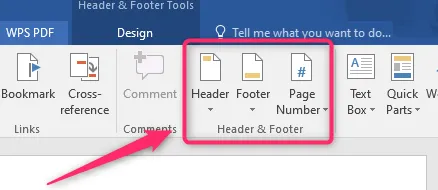
- Depending on the drop-down you choose, click either the Remove Header or Remove Footer from the menu.
Pros
- Using the Insert tool can assist you in ensuring that headers and footers are removed consistently across your page.
- The Insert tool allows you to quickly and simply remove headers and footers.
Cons
- In rare circumstances, using the Insert tool to delete headers and footers may not remove all parts of the Header or Footer.
Part 3: Extended Reading: Easily Remove Header and Footer in Word/PDF Files
On the assumption that you want a more convenient way to remove header and footer in Word with one click, then UPDF will be a perfect choice. Before getting started with this method, you have to save your word documents as PDF first.
Note: For iPhone users, they can directly download UPDF and remove headers & footers in Word.
PDF files are a popular document interchange and presentation format. They usually include extraneous headers and footers, which detract from the page's overall appearance. Removing these components can help improve the paper's readability and professionalism. Several methods exist to remove the Header and Footer from PDF files, including using a PDF editor like UPDF.
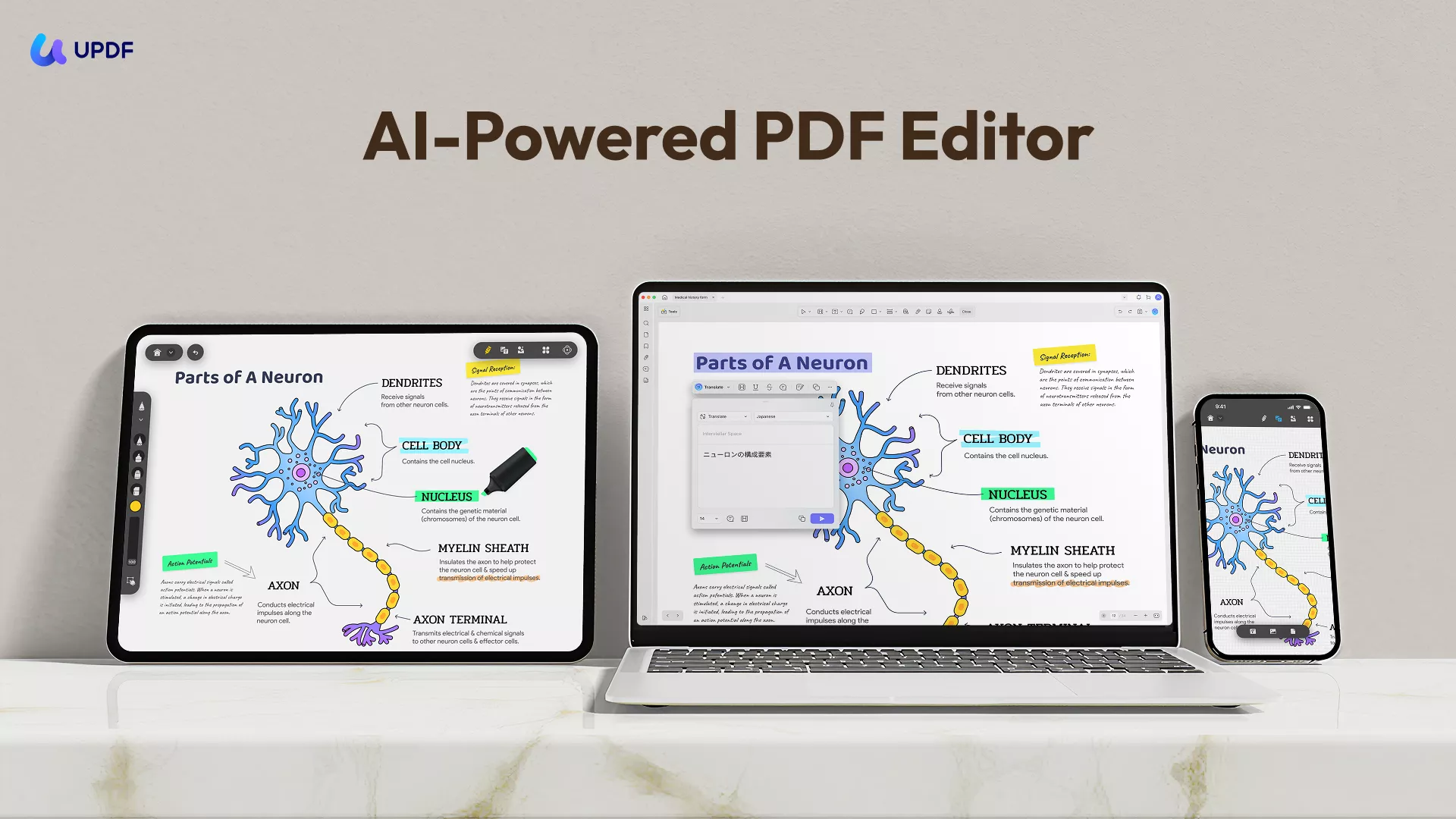
UPDF is an excellent PDF editor that offers a unified method for handling PDF documents. With an appealing variety of functionality offered in the editor, the tool meets many compelling customer demands for modifying the attributes of their PDFs. UPDF, besides the key editing, annotating, and other PDF management functions, provides a superb platform for eliminating PDF headers and footers. Thus, if you want to edit or remove the Header or Footer from your document, try the UPDF software. Let's discuss methods and steps to follow while using this software, UPDF.
Method 1: Using the Header Option
Step 1: Download and install UPDF first.
Windows • macOS • iOS • Android 100% secure
Step 2: When you start it, click the "Open File" button to import the PDF to be altered. Then locate the "Tools" icon found on the top part of the page. Then, click the "Header & Footer" button to open the Header and Footer pane.
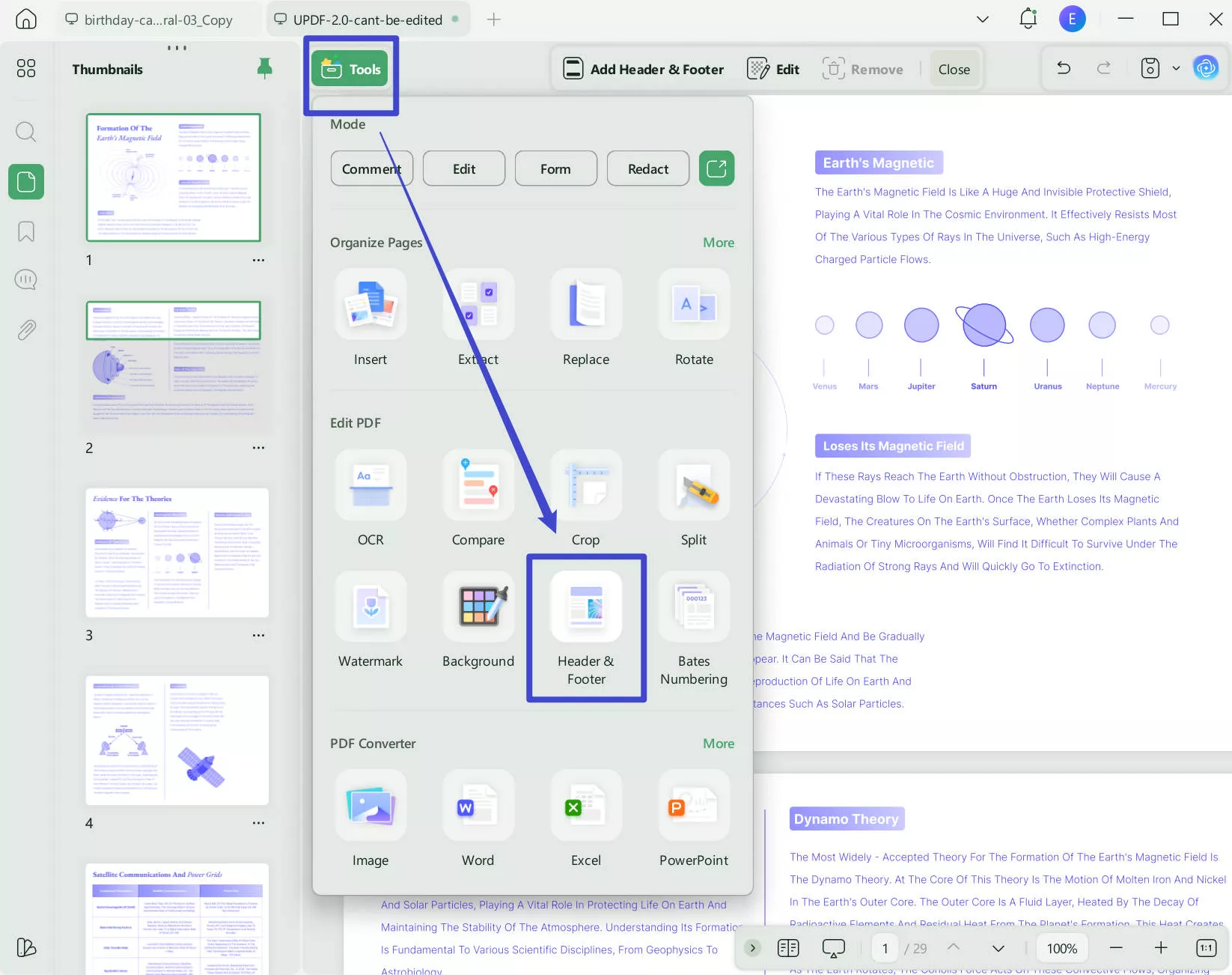
Step 3: On the pane above the screen, click the "Remove" icon to get rid of the Header and foot in your PDF document. That is all you need to do.
Method 2: Cropping the PDF Page
Step 1: When you start it, click the "Open File" button to import the PDF to be altered.Then locate the "Tools" icon found on the top part of the page.
Step 2: Then, click the "Split" button choose the Crop Page option. Then, click the "Apply" button to access the cropping features.
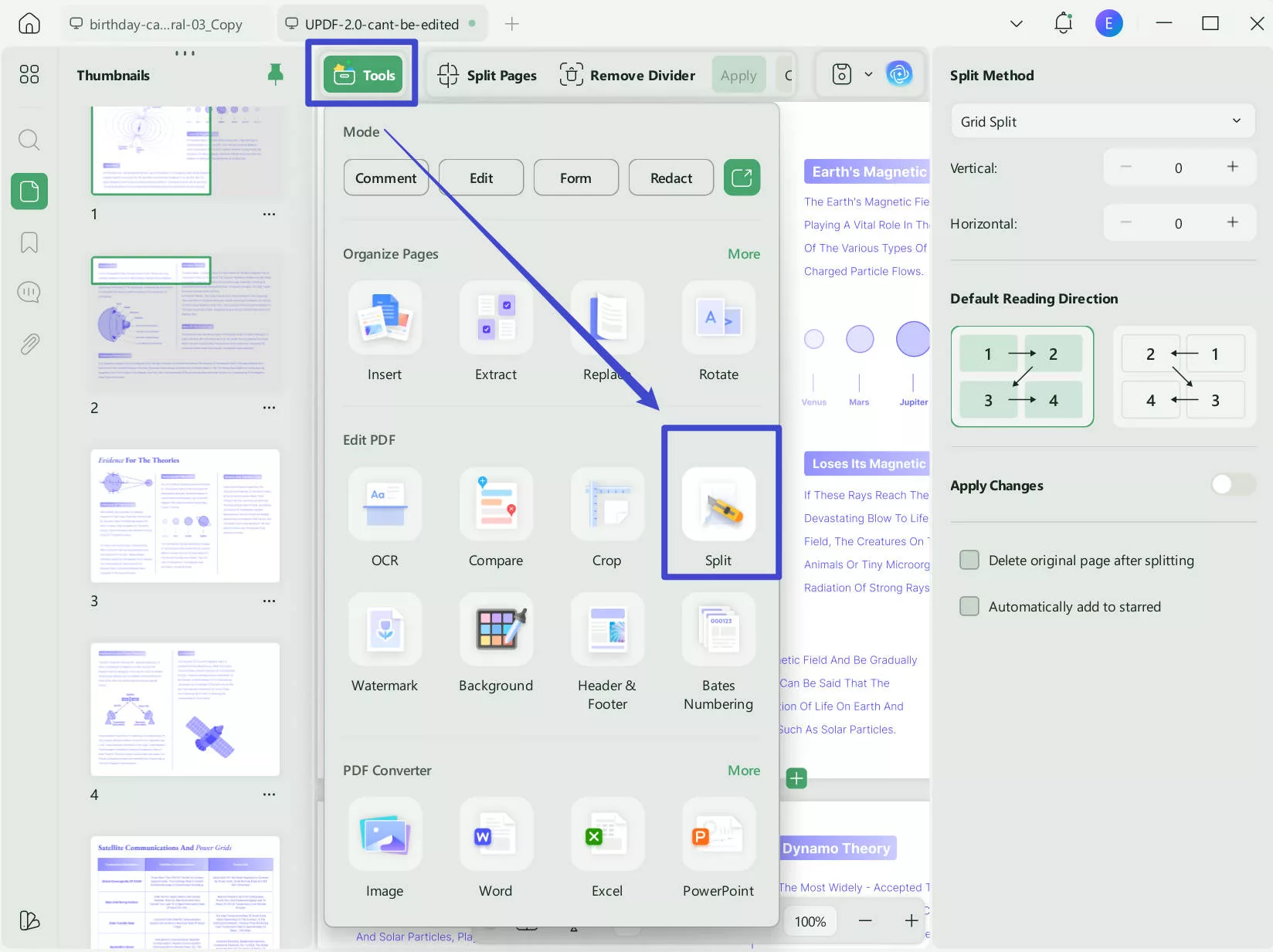
If you still do not have UPDF on your computer, you can download it via the below button.
Windows • macOS • iOS • Android 100% secure
Part 4: FAQs About Header and Footer in Word
Q1. How do I remove a Header and Footer Section break in Word?
Go to Home > Tools > Header & Footer to view section breaks. Then, Press "Remove“ with your cursor exactly before the section break.
Q2. How do I exit the Header and Footer sections?
To quit the Header and Footer area, you only need to switch the options in "Tools".
Conclusion
Removing the Header and Footer of a Word document is a simple process. You can use the above-mentioned methods to alter your document's Footer and Header. Additionally, the techniques of removing headers and footers are available for different OS.
On the other side, removing the Header and Footer from PDF files can improve the look and readability of the content. While there are a few solutions for this process, employing a PDF editor or an online application is one of the simplest and most successful. Users may quickly and simply remove headers and footers from their PDF files and generate more polished, professional-looking documents by following the methods mentioned in the preceding section. You can use tools like UPDF while working with PDFs. Just download UPDF via the below button and use it now.
Windows • macOS • iOS • Android 100% secure
 UPDF
UPDF
 UPDF for Windows
UPDF for Windows UPDF for Mac
UPDF for Mac UPDF for iPhone/iPad
UPDF for iPhone/iPad UPDF for Android
UPDF for Android UPDF AI Online
UPDF AI Online UPDF Sign
UPDF Sign Edit PDF
Edit PDF Annotate PDF
Annotate PDF Create PDF
Create PDF PDF Form
PDF Form Edit links
Edit links Convert PDF
Convert PDF OCR
OCR PDF to Word
PDF to Word PDF to Image
PDF to Image PDF to Excel
PDF to Excel Organize PDF
Organize PDF Merge PDF
Merge PDF Split PDF
Split PDF Crop PDF
Crop PDF Rotate PDF
Rotate PDF Protect PDF
Protect PDF Sign PDF
Sign PDF Redact PDF
Redact PDF Sanitize PDF
Sanitize PDF Remove Security
Remove Security Read PDF
Read PDF UPDF Cloud
UPDF Cloud Compress PDF
Compress PDF Print PDF
Print PDF Batch Process
Batch Process About UPDF AI
About UPDF AI UPDF AI Solutions
UPDF AI Solutions AI User Guide
AI User Guide FAQ about UPDF AI
FAQ about UPDF AI Summarize PDF
Summarize PDF Translate PDF
Translate PDF Chat with PDF
Chat with PDF Chat with AI
Chat with AI Chat with image
Chat with image PDF to Mind Map
PDF to Mind Map Explain PDF
Explain PDF Scholar Research
Scholar Research Paper Search
Paper Search AI Proofreader
AI Proofreader AI Writer
AI Writer AI Homework Helper
AI Homework Helper AI Quiz Generator
AI Quiz Generator AI Math Solver
AI Math Solver PDF to Word
PDF to Word PDF to Excel
PDF to Excel PDF to PowerPoint
PDF to PowerPoint User Guide
User Guide UPDF Tricks
UPDF Tricks FAQs
FAQs UPDF Reviews
UPDF Reviews Download Center
Download Center Blog
Blog Newsroom
Newsroom Tech Spec
Tech Spec Updates
Updates UPDF vs. Adobe Acrobat
UPDF vs. Adobe Acrobat UPDF vs. Foxit
UPDF vs. Foxit UPDF vs. PDF Expert
UPDF vs. PDF Expert


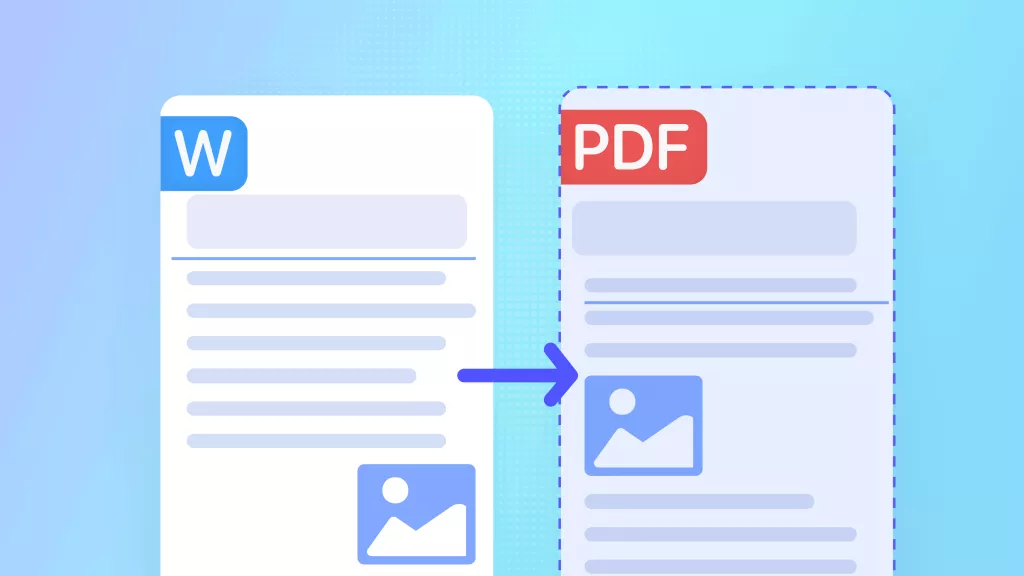

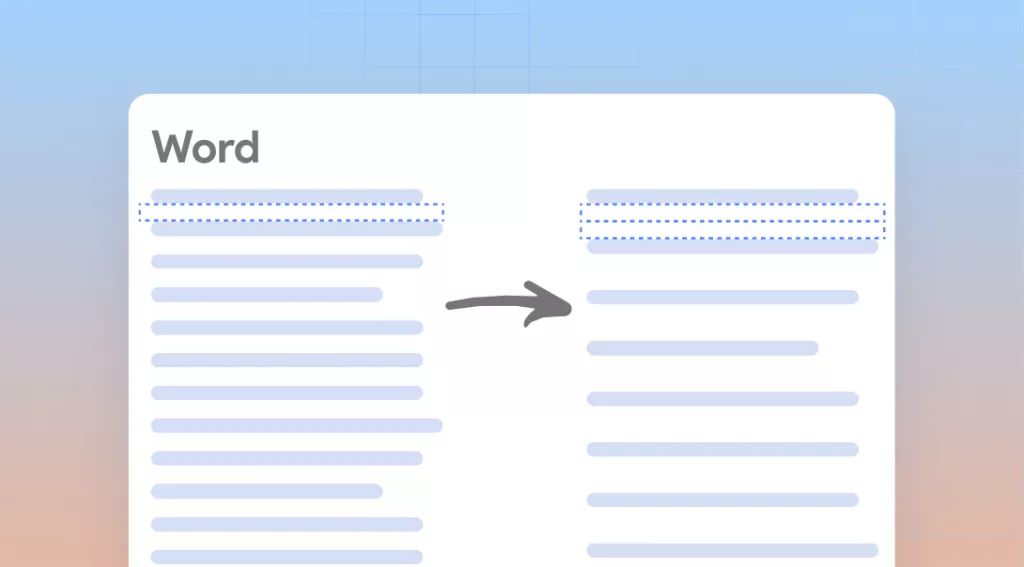

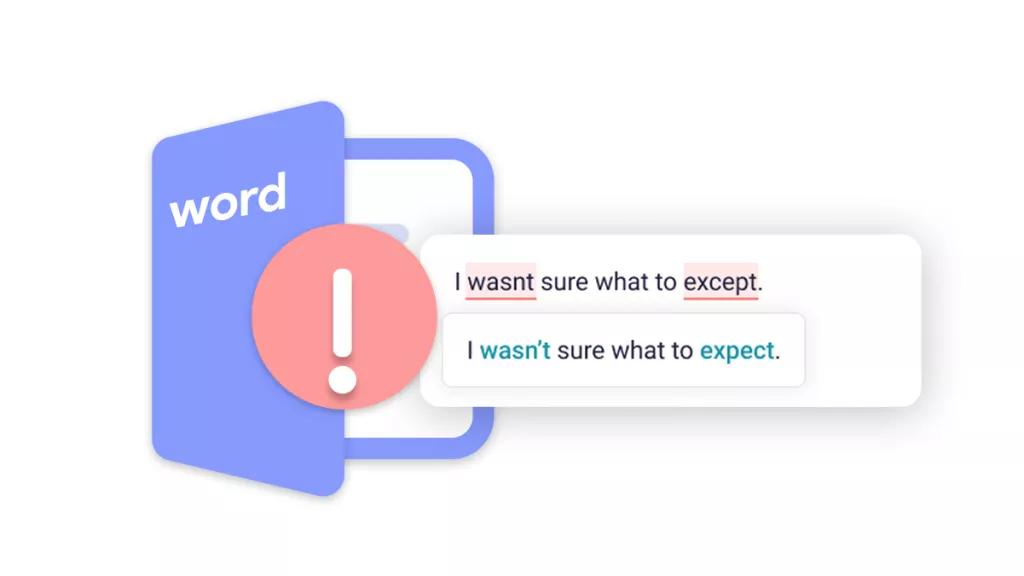

 Enola Davis
Enola Davis 

 Enid Brown
Enid Brown 